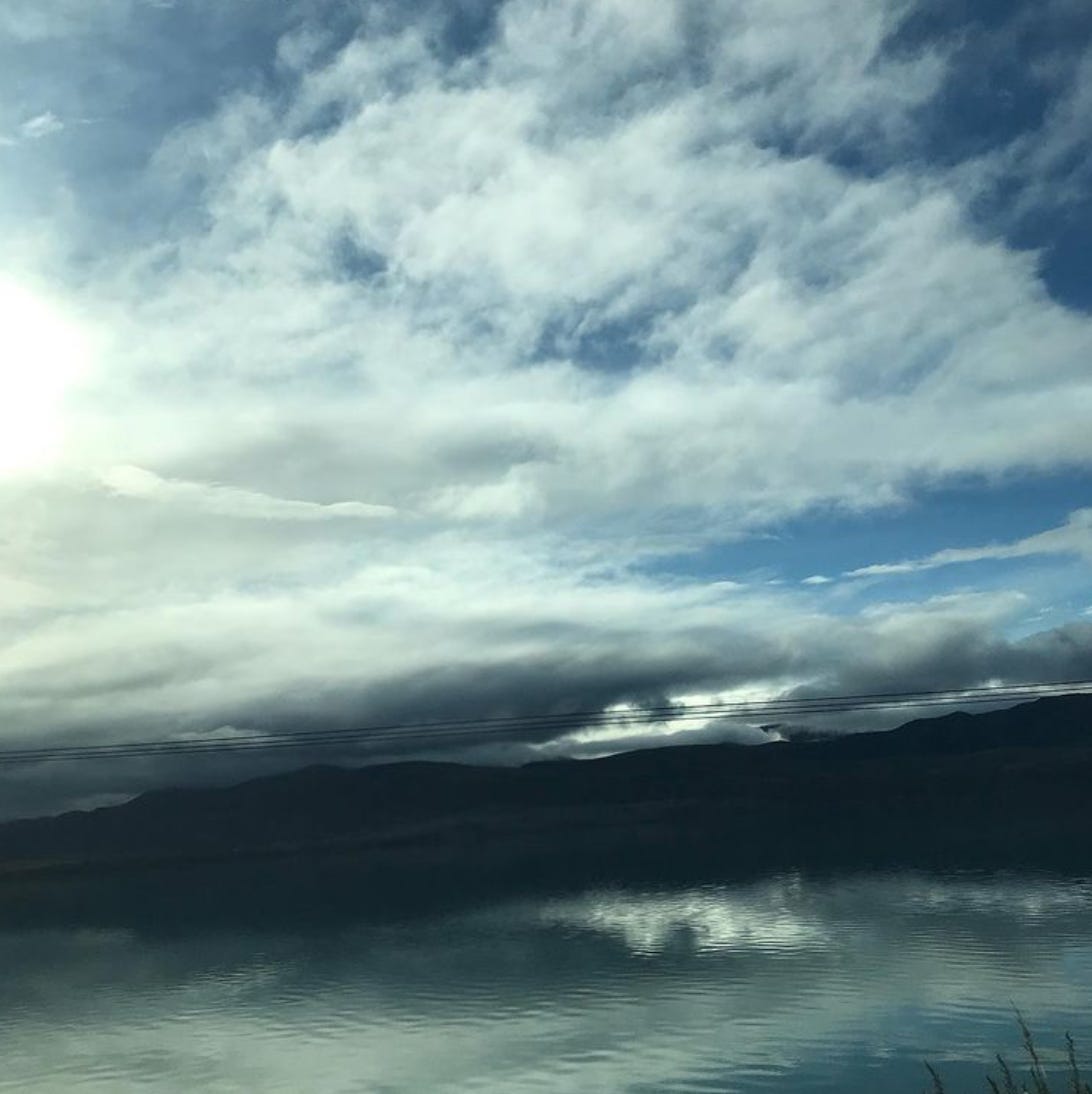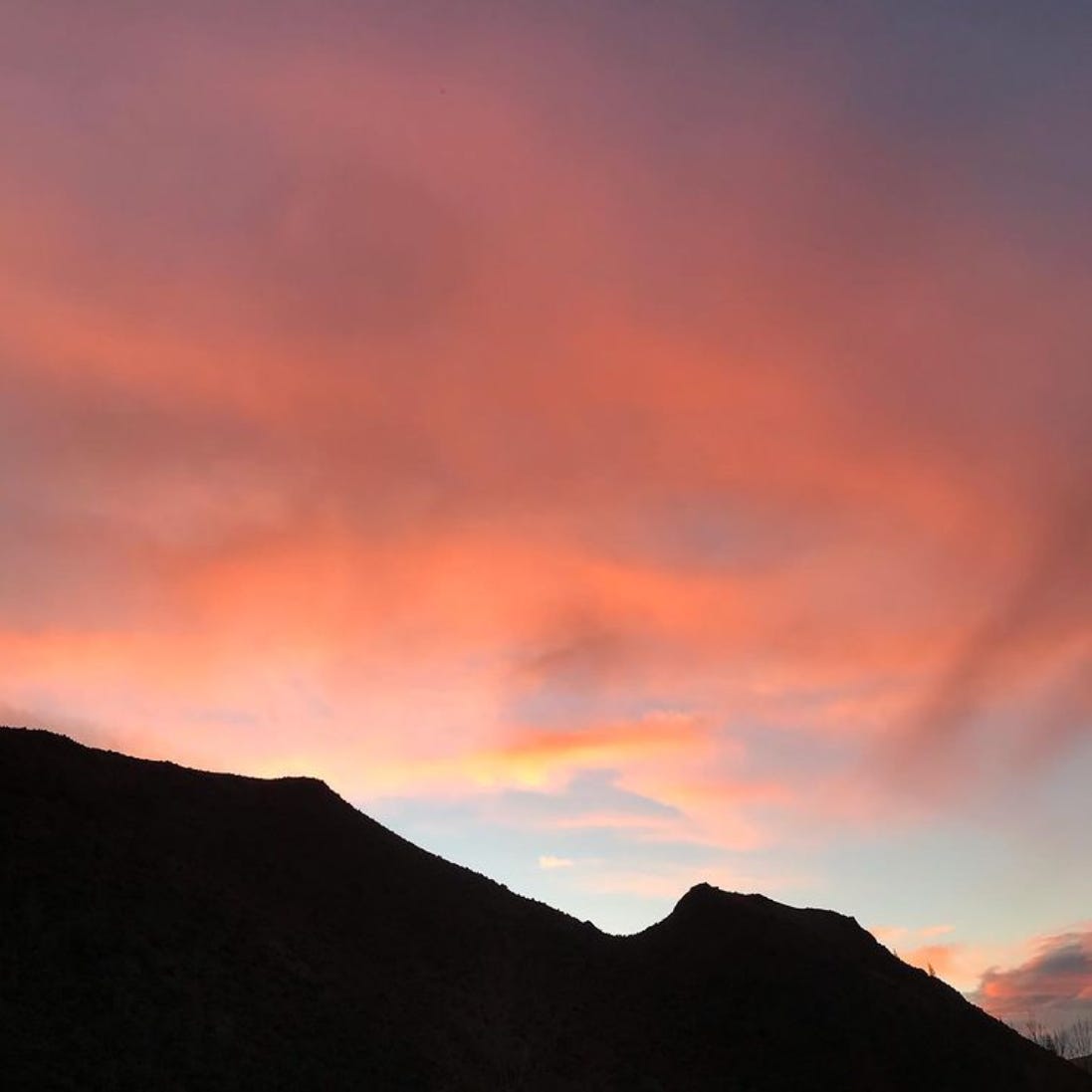Thanks for being patient with me during the tour. I know posting was kind of sporadic. Monday night was our last night, we were in Kurow.
Kurow was bloody amazing. It really was. We had so many people say, “why are you going to Kurow?” Even while we were in Kurow we had people asking that. And as you know (if you read my previous tour diaries) - I was nervous.
I really thought they might not like us. But I was very wrong. It was the best show on the tour. You could really feel the love in the room. Everyone was ready for a good time. And honestly, that helps so much when you’re doing a show.
Sometimes you can tell that there are people in the audience who are sceptical. They come with this view that you must win them over. You feel like you’re starting on the back foot. But others are like - I’m just here for a great time whether you’re up to it or not. Obviously, we believe we are up to it, otherwise we would not be charging $30 a ticket. But it can be intimidating because being on stage is not one-sided.
You need the audience there with you. And I feel like we had so many people who were there with us during the tour. They came ready to have fun. And we were ready to meet them with that same energy. In Kurow - everyone had that energy. And it was special.
Also, at interval the pub brought out party pies and hot chips! And a bunch of women baked and brought the baking for everyone to share. It truly was magic. We had little babies cooing in the front, screams of laughter, lots of wine and you could just feel the joy. I stayed up until 1.30am at the Kurow pub and was quite sozzled when I walked next door to my room.
I went to bed feeling very full. And I slept well. That hard-earned sleep.
In the morning, the air was so crisp and cool. We drove back to Christchurch and the mountains were so imposing and glorious. They are so massive. You feel so small looking up at them.
On the road to Kurow.
The Waitaki Valley feels different. It must have been so ominous for new immigrants arriving from around the world.
In 1901, a woman named Martha birthed a baby in Ōtepoti.
She did not name her new wean after her husband Arnold Nordmeyer, a German Seaman. Martha had three babies already and had already lost a husband when she met Arnold. But little Heinrich Arnold Nordmeyer became Arnold Henry Nordmeyer anyway.
Martha’s name is lost to history. She was from County Tyrone in Ulster. A land she would have called Tír Eoghain or Eoghans Land.
As she birthed her baby, I wondered if she thought of the mountains of her homeland Sliabh Speirín. Kurow is the butchered name of the mountain Te Kohurau.
The town of Kurow emerged through the creation of the Waitaki Dam. Kurow has a rich workers history. In the 20s young men came to the town to build the dam. And it was there, in the shadow of that churning, freezing river that workers who went to Kurow with the promise of a better life found themselves lost in the deep valley searching for work and warmth.
There was work. And then there wasn’t.
Arnold as an adult was a believer. How much of this his mother taught him we cannot know. When he saw the desperation in Kurow of young families suffering under the economic weight of a depression he became radicalised.
Kurow is the unlikely home of the first social security scheme for New Zealand. Arnold, a minister, saw the need for care for workers. For bread and roses. For community.
He was also a driving force for free general practitioner visits, something at the time doctors were against. This was a first step to the free healthcare we have now and the pension.
Before the show, I sat out in the cold Kurow air looking at the mountain thinking about Eddie’s latest thyroid tests. The sun was already setting.
I didn’t know about Kurow’s history. I just gulped in the cold air and tried to think.
Arnold met a young woman Frances Maria Kernahan in Kurow and they married in Oamaru. They had two babies during the Great Depression. Thousands of workers had come to Kurow in the hopes that they could work on the dam. They lived in a massive camp on the outskirts of the town, jobless and hopeless.
I wonder if a young Frances looked at those imposing mountains and felt the heavy weight of motherhood. There would have been so many mothers who felt so overwhelmed at that time.
Just five years after they married Arnold began his political career. Frances may have thought she married a minister, but her legacy is silenced to that of a politician’s wife.
It’s hard to find any information on her. She was just 19 when they married, and they apparently met when she was just 15. I imagine that in the 1930s and 40s a minister’s wife and a politician’s wife would share the same lonely life of obedience and service, but I like to think of Frances as strong like the women of Kurow I met.
Arnold was no saint. He was staunchly anti-choice for example. But we have no way of knowing that his views didn’t soften with age or wisdom. And his backward beliefs cannot discount his work any more than his work can excuse those beliefs.
Arnold was labelled a Presbyterian puritan by both the right and the left after his “Black Budget” and was hardly popular with many workers when he taxed smokes and booze (two things he could not abide personally). His aim was mutual aid, or at least something similar.
When I moved to Island Bay, Eddie was about six months old. We had been living in a very damp house. He’d spent most of his time in hospital and I remember pushing glad wrap into the corners of the window to try to stop the endless dripping.
I felt like I’d failed as a mother.
In Kurow, in the 20s and 30s mothers came from the winterless North in modest dresses barely hiding the swell of their pregnant bellies. They found themselves in shearer quarters if they were lucky, snow piling up.
The mothers with means in Kurow joined the church members and held fundraisers for shoes and knitted woollen socks.
We moved to our house by the sea thanks to our family. The window is double-glazed and from it I can see the South Island.
My community is a community of haves and have nots. Usually divided by a hill. It’s on the other side of this hill that the Nordmeyers settled after Arnold’s career ended.
They joined the church that is walking distance from my house.
When Rebecca and I came to Kurow we said we wanted to keep the money we raised from the tour in the community. This has been the same at every stop.
So, the mothers of Kurow began work on starting a charity. For all the women who live in the shadows of those mountains, all of those who mother their communities.
Te Kohurau the mountain means many mists. Kurow is a town of many mothers, and it always has been. A 1987 thesis on community in Kurow noted the work of women, many of them mothers: “A wide range of women's groups met in Kurow in the 1930s, too, groups such as the Womens' Division of the Farmers' Union (formed in 1929), the Anglican Mothers' Union, the Anglican Ladies Auxiliary, Plunket (formed in 1914), the Presbyterian Women's Missionary Union (formed in 1923), the Presbyterian Mother's Union (formed in 1934), the Presbyterian Ladies Guild (formed in 1936) and the Presbyterian Girls' Auxiliary (formed in 1939)”.
During a world-wide depression, the mothers of Kurow began the work of community and mutual aid.
It is nice to see that in 2021 that work continues. A new auxiliary of women has been born in the valley. I think Lady Frances and Mother Martha would be happy that the ties that bound a southern town with a bay on a south coast continue to hold, even after all these years.
Here’s a little Irish lullaby from 1904 for you. A leanbhan is a baby. Maybe Martha sang this to her babies?
Sleep, O babe, for the red bee hums
The silent twilight’s fall:
Aibheall from the Grey Rock comes
To wrap the world in thrall.
A leanbhan O, my child, my joy,
My love and heart’s desire,
The crickets sing you lullaby
Beside the dying fire.






I remember Arnold Nordmeyer. A very kind and principled man, staunch.
This is just so lovely!